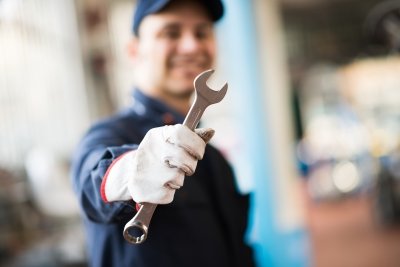 It can be so easy for us to forget where our water comes from, and what it takes to make it clean and safe for our everyday use. Before water reaches our faucet, it flows through the ground, picking up soluble bits of whatever it passes through, which can sometimes be hazardous. To filter these properties out, our homes have a variety of purification systems. One type of filter, the water softener, sorts out the unwanted minerals that make water “hard” and improves water quality.
It can be so easy for us to forget where our water comes from, and what it takes to make it clean and safe for our everyday use. Before water reaches our faucet, it flows through the ground, picking up soluble bits of whatever it passes through, which can sometimes be hazardous. To filter these properties out, our homes have a variety of purification systems. One type of filter, the water softener, sorts out the unwanted minerals that make water “hard” and improves water quality.
How To Tell If You Have Hard Water
Having a water softener in your plumbing system can be beneficial in many ways, especially if your home or commercial property is already showing signs of hard water build-up. Hard water build-up may create water spots on your dishes, could cause soap build-up in your sinks, or may leave your hair feeling dry and brittle after a shower. By using a water softener, you can add an extra level of filtration for your water to go through, improving your health, protecting your pipes, and even minimizing your carbon footprint.
How Water Softeners Work
The process of water softening is a very scientific one but works very similarly to any other type of filtration system. In the most basic way, the water softener is an ion exchanger. Hard water has a high calcium and magnesium content, so to remove these minerals a water softening tank attaches to a brine tank and filters out the unwanted components. The water enters through a port in the tank, passes through a control valve, and through a resin, which “softens” it. The resin is made of sodium ion-saturated beads, which attract the hard minerals in exchange for the sodium carried on the beads. In short, the hard minerals attach to the resin, leaving the water “soft” and free of the unwanted minerals.
The newly softened water will then go through a strainer basket at the bottom of the tank and enter the riser, a central tube that flows to the top and out of the tank. The resin is left behind in the tank, and will be regenerated, either by a meter or timer, depending on the type of water softening tank you have. It will be sent through the brine tank, which is filled with softener salt. The hard minerals will be lifted from the beads, flushed down the drain, and the beads will be recharged with sodium ions for the next batch of hard water. Using a water softener in your home or commercial property can be extremely beneficial for you, and anyone else who uses your water.
Benefits Of A Water Softener
Softer water will help you keep your dishes, silverware, and anything else you use your water to clean, shiny and spotless. Without the hard minerals to interfere, the water will not leave any residue and will help you keep your shower and sinks clean of soap scum and build-up. It can also make you cleaner after you shower or bathe, can improve the softness of your hair, and will improve the effectiveness of your washing machine.
Having a water softener will also make your water heater more efficient, requiring less gas and electrical energy. Not only will this save you money on your monthly bill, but it can also reduce your carbon footprint, making your home or business more environmentally friendly. Also, the soft water will be kinder to your pipes and can make them last longer without the added hard minerals, which can cause build-up over time.
If you think a water softener could be a good addition to your residential or commercial water system, contact Sound Plumbing & Heating, Inc. for more information.

